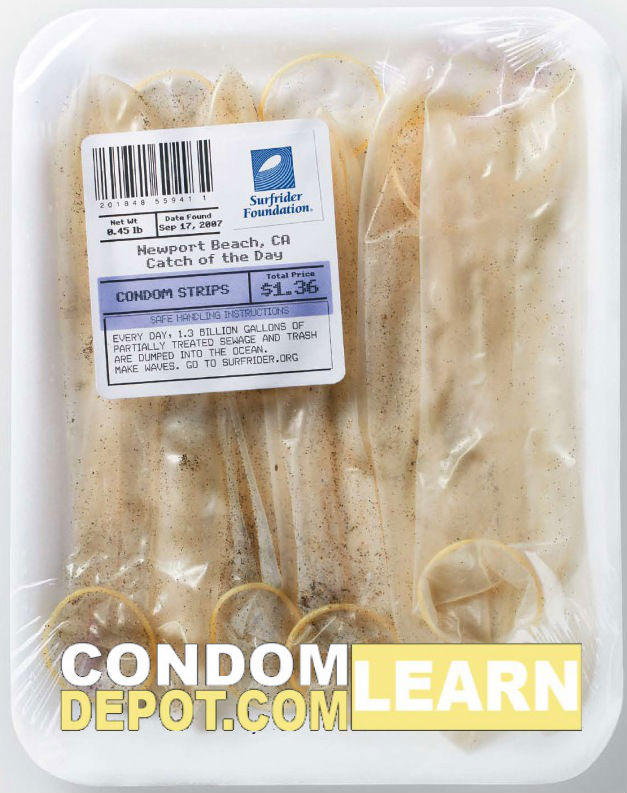Green is more than just a trend. It’s a way of living. Is your carbon footprint getting too caught up in your sex life?
We get asked a lot if condoms are eco-friendly. And there are some major initiatives happening to make them more so. For now, here’s a quick guide to eco-friendly condom materials.
Biodegradable Condoms
- Lambskin: The only biodegradable condom on the market is my number one favorite condom material. Since it’s made of a biological material, lambskin breaks down pretty easily. However, that doesn’t mean you should go throwing them out your car window, or flushing them a toilet. They can still clog a toilet and no one wants to come across a wild condom, blowing in the breeze. Dispose of them just like you would any other condom for best results, and indulge yourself in the warm fuzzy feeling you get for not screwing over the planet while you’re screwing. Trojan NaturaLambs are the only lambskin condoms that we currently carry.
Non-Biodegradable Condoms
- Latex: There’s a popular rumor out there that condoms are biodegradable since they are made of latex rubber, which is a natural product of rubber trees (and therefore biodegradable). But latex condoms are not 100% latex rubber. They have other products in them which make them stronger, thinner, more comfortable, and lend them a variety of other qualities.
- Polyisoprene: Polyisoprene is a synthetic form of latex without the proteins that cause allergic reactions. Because polyisoprene is so chemically close to latex, it is also not biodegradable, even though some would consider the form-fitting comfort of Lifestyles SKYN or Durex Real Feel to be superior to latex condoms.
- Polyurethane: Polyurethane is a form of soft plastic, which means that, like latex, it is not biodegradable.
- Nitrile: Sorry– our favorite (and only) nitrile-based condom, the FC2, also known as the female or internal condom is not biodegradable.
- Silicone: With the Origami condoms on the way, one big question many have is whether or not these silicone condoms will be biodegradable. While tests are still forthcoming, the answer is most likely a big, fat no. Silicone is not a biodegradable material.

How Do You Dispose of Condoms?
Even though most of the above condoms are not biodegradable, they can still be thrown away. Once put into the garbage, your local garbage company will remove them to a landfill. There they, along with other garbage, can decompose naturally and away from anywhere where they might do harm.
If you’re embarrassed about a parent/sibling/roommate/guest seeing your spunk-filled prophylactic, wrap it up in some toilet paper.
This is a far better method than flushing your condoms, even if they are biodegradable. If flushing them doesn’t clog your drains, it will end up in waterways where they can do harm to marine life or the ecosystems they live in. Remember, condoms aren’t fish! They belong in the trash.
Expired Condoms
We often get asked what we do with expired condoms. Do we just throw them out? Do we donate them? Is there a secret Condom Depot barracks somewhere where teams of top condom scientists are creating a giant, latex robot to fight the dark ones the prophecy foretold?
Before they expire, we try to get to them to people who will use them before they go bad. You can check out our Clearance Condoms, but they go quick! We’ve had people ask for them for scientific and arts purposes but, in most cases, they are responsibly discarded. Rest assured- any condoms you purchase from us will be anywhere from 3-5 years before its expiration date. We do our best to avoid having expired condoms. We’d rather condoms go to good use before they are disposed of.
